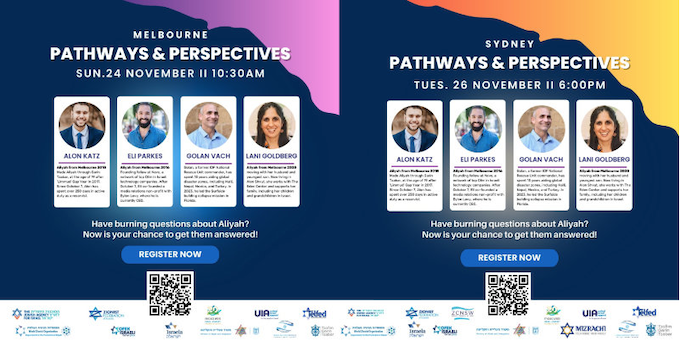What makes it possible for a totalitarian or any other dictatorship to rule is that people are not informed; how can you have an opinion if you are not informed? If everybody always lies to you, the consequence is not that you believe the lies, but rather that nobody believes anything any longer… And a people that no longer can believe anything cannot make up its mind. It is deprived not only of its capacity to act but also of its capacity to think and to judge. And with such a people you can then do what you please.
— Hannah Arendt
 In a perfect example of the Nanny State mindset at work, Hillary Clinton insists that the powers-that-be need “total control” in order to make the internet a safer place for users and protect us harm.
In a perfect example of the Nanny State mindset at work, Hillary Clinton insists that the powers-that-be need “total control” in order to make the internet a safer place for users and protect us harm.
Clinton is not alone in her distaste for unregulated, free speech online.
A bipartisan chorus that includes both presidential candidates Kamala Harris and Donald Trump has long clamored to weaken or do away with Section 230 of the Communications Decency Act, which essentially acts as a bulwark against online censorship.
It’s a complicated legal issue that involves debates over immunity, liability, net neutrality and whether or not internet sites are publishers with editorial responsibility for the content posted to their sites, but really, it comes down to the tug-of-war over where censorship (corporate and government) begins and free speech ends.
As Elizabeth Nolan Brown writes for Reason, “What both the right and left attacks on the provision share is a willingness to use whatever excuses resonate—saving children, stopping bias, preventing terrorism, misogyny, and religious intolerance—to ensure more centralized control of online speech. They may couch these in partisan terms that play well with their respective bases, but their aim is essentially the same.”
In other words, the government will use any excuse to suppress dissent and control the narrative.
The internet may well be the final frontier where free speech still flourishes, especially for politically incorrect speech and disinformation, which test the limits of our so-called egalitarian commitment to the First Amendment’s broad-minded principles.
On the internet, falsehoods and lies abound, misdirection and misinformation dominate, and conspiracy theories go viral.
This is to be expected, and the response should be more speech, not less.
As Justice Brandeis wrote nearly a century ago: “If there be time to expose through discussion, the falsehoods and fallacies, to avert the evil by the processes of education, the remedy to be applied is more speech, not enforced silence.”
Yet to the government, these forms of “disinformation” rank right up there with terrorism, drugs, violence, and disease: societal evils so threatening that “we the people” should be willing to relinquish a little of our freedoms for the sake of national security.
Of course, it never works out that way.
The war on terror, the war on drugs, the war on illegal immigration, the war on COVID-19: all of these programs started out as legitimate responses to pressing concerns only to become weapons of compliance and control in the government’s hands.
Indeed, in the face of the government’s own authoritarian power-grabs, coverups, and conspiracies, a relatively unfettered internet may be our sole hope of speaking truth to power.
The right to criticize the government and speak out against government wrongdoing is the quintessential freedom.
You see, disinformation isn’t the problem. Government coverups and censorship are the problem.
Unfortunately, the government has become increasingly intolerant of speech that challenges its power, reveals its corruption, exposes its lies, and encourages the citizenry to push back against the government’s many injustices. Every day in this country, those who dare to speak their truth to the powers-that-be find themselves censored, silenced or fired.
While there are all kinds of labels being put on so-called “unacceptable” speech today, the real message being conveyed by those in power is that Americans don’t have a right to express themselves if what they are saying is unpopular, controversial or at odds with what the government determines to be acceptable.
Where the problem arises is when you put the power to determine who is a potential danger in the hands of government agencies, the courts and the police.
Remember, this is the same government that uses the words “anti-government,” “extremist” and “terrorist” interchangeably.
This is the same government whose agents are spinning a sticky spider-web of threat assessments, behavioral sensing warnings, flagged “words,” and “suspicious” activity reports using automated eyes and ears, social media, behavior sensing software, and citizen spies to identify potential threats.
This is the same government that keeps re-upping the National Defense Authorization Act (NDAA), which allows the military to detain American citizens with no access to friends, family or the courts if the government believes them to be a threat.
This is the same government that has a growing list—shared with fusion centers and law enforcement agencies—of ideologies, behaviors, affiliations and other characteristics that could flag someone as suspicious and result in their being labeled potential enemies of the state.
For instance, if you believe in and exercise your rights under the Constitution (namely, your right to speak freely, worship freely, associate with like-minded individuals who share your political views, criticize the government, own a weapon, demand a warrant before being questioned or searched, or any other activity viewed as potentially anti-government, racist, bigoted, anarchic or sovereign), you could be at the top of the government’s terrorism watch list.
Thus, no matter how well-meaning the politicians make these encroachments on our rights appear, in the right (or wrong) hands, benevolent plans can easily be put to malevolent purposes.
Even the most well-intentioned government law or program can be—and has been—perverted, corrupted and used to advance illegitimate purposes once profit and power are added to the equation. For instance, the very same mass surveillance technologies that were supposedly so necessary to fight the spread of COVID-19 are now being used to stifle dissent, persecute activists, harass marginalized communities, and link people’s health information to other surveillance and law enforcement tools.
We are moving fast down that slippery slope to an authoritarian society in which the only opinions, ideas and speech expressed are the ones permitted by the government and its corporate cohorts.
The next phase of the government’s war on anti-government speech and so-called thought crimes could well be mental health round-ups and involuntary detentions.
Under the guise of public health and safety, the government could use mental health care as a pretext for targeting and locking up dissidents, activists and anyone unfortunate enough to be placed on a government watch list.
This is how it begins.
In communities across the nation, police are already being empowered to forcibly detain individuals they believe might be mentally ill, based solely on their own judgment, even if those individuals pose no danger to others.
In New York City, for example, you could find yourself forcibly hospitalized for suspected mental illness if you carry “firmly held beliefs not congruent with cultural ideas,” exhibit a “willingness to engage in meaningful discussion,” have “excessive fears of specific stimuli,” or refuse “voluntary treatment recommendations.”
While these programs are ostensibly aimed at getting the homeless off the streets, when combined with advances in mass surveillance technologies, artificial intelligence-powered programs that can track people by their biometrics and behavior, mental health sensor data (tracked by wearable data and monitored by government agencies such as HARPA), threat assessments, behavioral sensing warnings, precrime initiatives, red flag gun laws, and mental health first-aid programs aimed at training gatekeepers to identify who might pose a threat to public safety, they could well signal a tipping point in the government’s efforts to penalize those engaging in so-called “thought crimes.”
As the Associated Press reports, federal officials are already looking into how to add “‘identifiable patient data,’ such as mental health, substance use and behavioral health information from group homes, shelters, jails, detox facilities and schools,” to its surveillance toolkit.
Make no mistake: these are the building blocks for an American gulag no less sinister than that of the gulags of the Cold War-era Soviet Union.
The word “gulag” refers to a labor or concentration camp where prisoners (oftentimes political prisoners or so-called “enemies of the state,” real or imagined) were imprisoned as punishment for their crimes against the state.
The gulag, according to historian Anne Applebaum, used as a form of “administrative exile—which required no trial and no sentencing procedure—was an ideal punishment not only for troublemakers as such, but also for political opponents of the regime.”
This age-old practice by which despotic regimes eliminate their critics or potential adversaries by making them disappear—or forcing them to flee—or exiling them literally or figuratively or virtually from their fellow citizens—is happening with increasing frequency in America.
Now, through the use of red flag laws, behavioral threat assessments, and pre-crime policing prevention programs, the groundwork is being laid that would allow the government to weaponize the label of mental illness as a means of exiling those whistleblowers, dissidents and freedom fighters who refuse to march in lockstep with its dictates.
Each state has its own set of civil, or involuntary, commitment laws. These laws are extensions of two legal principles: parens patriae Parens patriae (Latin for “parent of the country”), which allows the government to intervene on behalf of citizens who cannot act in their own best interest, and police power, which requires a state to protect the interests of its citizens.
The fusion of these two principles, coupled with a shift towards a dangerousness standard, has resulted in a Nanny State mindset carried out with the militant force of the Police State.
The problem, of course, is that the diagnosis of mental illness, while a legitimate concern for some Americans, has over time become a convenient means by which the government and its corporate partners can penalize certain “unacceptable” social behaviors.
In fact, in recent years, we have witnessed the pathologizing of individuals who resist authority as suffering from oppositional defiant disorder (ODD), defined as “a pattern of disobedient, hostile, and defiant behavior toward authority figures.”
Under such a definition, every activist of note throughout our history—from Mahatma Gandhi to Martin Luther King Jr. to John Lennon—could be classified as suffering from an ODD mental disorder.
Of course, this is all part of a larger trend in American governance whereby dissent is criminalized and pathologized, and dissenters are censored, silenced, declared unfit for society, labelled dangerous or extremist, or turned into outcasts and exiled.
As I make clear in my book Battlefield America: The War on the American People and in its fictional counterpart The Erik Blair Diaries, this is how you subdue a populace.
The ensuing silence in the face of government-sponsored tyranny, terror, brutality and injustice is deafening.
The post
Disinformation Isn’t the Problem: Government Coverups and Censorship Are the Problem first appeared on
Dissident Voice.
This post was originally published on Dissident Voice.









